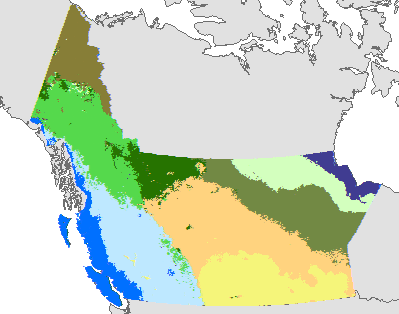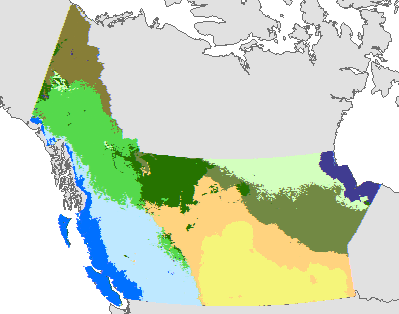Ecozones under Present Climate
As a preliminary tool, principal component analysis was used to try and find if climate can reveal any grouping within ecozones in western Canada. The Plot of component 1 and 2 clearly show the grouping underlying ecozones in western Canada. The Pacific Maritime records show first distinct cluster, with its precipitation more than 10000mm and far much higher than in other ecozones. The Cordillera ecozones seem (Montane Cordillera, Boreal and Taiga Cordillera) cluster more or less together exhibiting the climate characteristic of the Canadian Cordillera. Ecozones belonging to the Canadian Shield also cluster together. There are adjacent ecozones located at the eastern most part of the study are. Notable in most of the groupings of ecozones is the spatial location of the different ecozones like for instance in the cordillera grouping, which can be described as being consistent with cooling of temperatures with increase in latitude.

Principal component analysis of climate data for the 1991-2002 period
Ecozones under future climate
Characterisation of ecozones under present (1961-1990) and future (2020s, 2050s and 2080s) using discriminat analysis revealed that:
- The variation within 1961-1990 climate provides a good distiction of the different ecozones in western Canada.
- Climate conditions in the Prairies ecozone will expand northward in into the Boreal Plains ecozone
- most other changes in climate condition for different ecozones will be more pronounced at the ecotone, areas between described ecozones.
Maps ecozone predictions under different climate conditions For comparison with Mapped ecozones >>> |




